Filter by
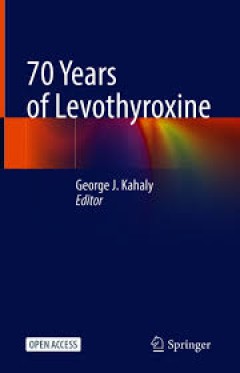
70 Years of Levothyroxine
This open access book presents the history, pharmacokinetics and pharmacodynamics of levothyroxine, discussing its role in the thyroid pathophysiology of patients of various ages and during pregnancy. It also describes the influence of levothyroxine on heart, bone and in cancer. When it was first synthesized in 1949, levothyroxine represented a significant advance in the treatment of hypothyroi…
- Edition
- -
- ISBN/ISSN
- 9783030632779
- Collation
- -
- Series Title
- -
- Call Number
- -

Alternatives to Animal Testing
This open access book presents recent advances in the pure sciences that are of significance in the quest for alternatives to the use of animals in research and describes a variety of practical applications of the three key guiding principles for the more ethical use of animals in experiments – replacement, reduction, and refinement, collectively known as the 3Rs. Important examples from acro…
- Edition
- 1
- ISBN/ISSN
- 9789811324475
- Collation
- VI, 130 hlm; ill., lamp.,
- Series Title
- -
- Call Number
- -
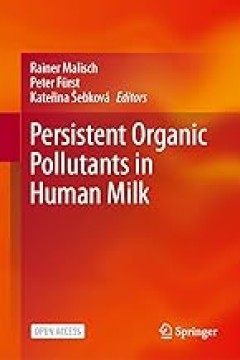
Persistent Organic Pollutants in Human Milk
This open access book reviews the trends of persistent organic pollutants (POPs) in human milk and discusses the main findings of five global surveys that were coordinated by the World Health Organization (WHO) and the United Nations Environment Programme (UNEP) from 2000 to 2019. Human milk was selected as core matrix for human exposure under the Global Monitoring Plan for effectiveness evalua…
- Edition
- -
- ISBN/ISSN
- 978-3-031-34085-7
- Collation
- XXVII, 683
- Series Title
- -
- Call Number
- -
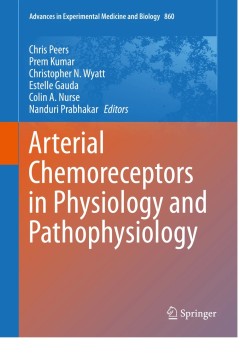
Arterial Chemoreceptors in Physiology and Pathophysiology
Every three years, the International Society for Arterial Chemoreception (ISAC) arranges a Meeting to bring together all of the major International research groups investigating the general topic of oxygen sensing in health and disease, with a prime focus upon systemic level hypoxia and carotid body function. This volume summarises the proceedings of the XIXth meeting of the Society, held in Le…
- Edition
- Ed. 1
- ISBN/ISSN
- 978-3-319-18440-1
- Collation
- XI, 404
- Series Title
- Advances in Experimental Medicine and Biology
- Call Number
- 615 ART a
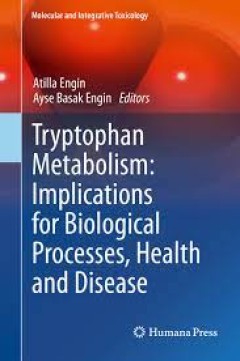
Tryptophan Metabolism: Implications for Biological Processes, Health and Disease
This book discusses the relationship between cellular immunity and tryptophan metabolism, as well as its products, serotonin and melatonin, in the development of several diseases and reappraises the common signal transduction pathways of the neurodegenerative diseases, carcinogenesis, immune tolerance, inflammation, hypersensitivity reactions, neuropsychiatric disorders, in addition to bacteria…
- Edition
- -
- ISBN/ISSN
- 978-3-319-15630-9
- Collation
- -
- Series Title
- -
- Call Number
- -
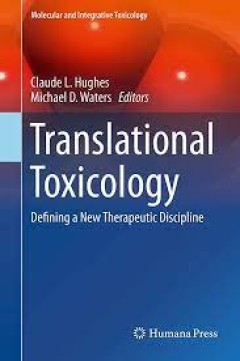
Translational Toxicology Defining a New Therapeutic Discipline
Bringing together a distinguished interdisciplinary team of contributors, this volume provides a comprehensive exploration of translational toxicology—a systematic approach to developing therapeutic interventions that can protect against, mitigate, or reverse the effects of exposures. In particular, the book addresses modes of action and biomarkers, developmental risks of exposures, and poten…
- Edition
- -
- ISBN/ISSN
- 978-3-319-27449-2
- Collation
- -
- Series Title
- -
- Call Number
- -
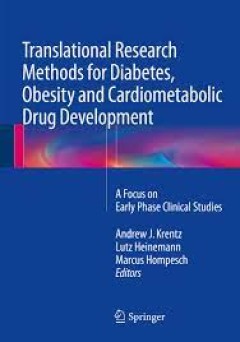
Translational Research Methods for Diabetes, Obesity and Cardiometabolic Drug…
The world is beset by a pandemic of obesity and type 2 diabetes and the need for new drugs is startlingly clear; recent years have seen a huge increase in research activity to fill this gap. The development of new drugs for diabetes and obesity must be founded upon a sound appreciation of the pathophysiology of these common disorders. The dual defects of insulin resistance and impaired insulin …
- Edition
- -
- ISBN/ISSN
- 978-1-4471-4920-0
- Collation
- -
- Series Title
- -
- Call Number
- -
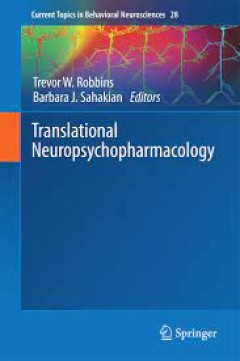
Translational Neuropsychopharmacology
This book covers wide areas of animal and human psychopharmacology with clinical utility in the treatment of psychiatric and neurological (e.g Alzheimer's disease) disorders. The main theme is to develop a new paradigm for drug discovery that questions the claim that animal models or assays fail adequately to predict Phase 3 clinical trials. A new paradigm is advocated that stresses the importa…
- Edition
- -
- ISBN/ISSN
- 978-3-319-33913-9
- Collation
- -
- Series Title
- -
- Call Number
- -
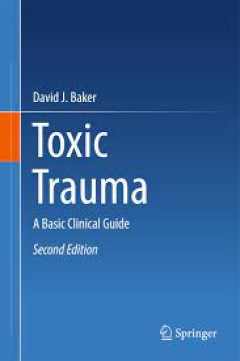
Toxic Trauma A Basic Clinical Guide
Winner of BMA Medical Book Award, Highly Commended in Public Health Written for medical professionals, this book provides a concise reference with clear guidelines on how to manage both the victims of chemical agent exposure and the site of the incident. David Baker considers the nature and basic science of the hazards faced as well as the practical management of persons exposed to chemicals…
- Edition
- -
- ISBN/ISSN
- 978-3-319-40916-0
- Collation
- -
- Series Title
- -
- Call Number
- -
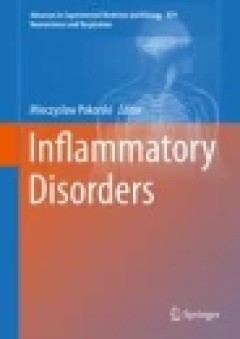
Inflammatory Disorders
The mechanistic basis of chronic inflammation remains unclear. The research sheds new light on the immune cells expressing the activation markers HLA-DR and regulatory T cells (Tregs) and the cells expressing Siglec receptors as being key players in the immune system responsiveness to antigens and thus in lung tissue damage of chronic inflammation. The results help understand the mechanisms of …
- Edition
- -
- ISBN/ISSN
- 978-3-319-10011-1
- Collation
- X, 67
- Series Title
- -
- Call Number
- 615 INF
 Computer Science, Information & General Works
Computer Science, Information & General Works  Philosophy & Psychology
Philosophy & Psychology  Religion
Religion  Social Sciences
Social Sciences  Language
Language  Pure Science
Pure Science  Applied Sciences
Applied Sciences  Art & Recreation
Art & Recreation  Literature
Literature  History & Geography
History & Geography